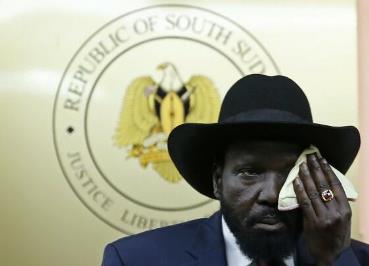South Sudan opposition backs formation of interim administration
February 12, 2014 (JUBA) – Several leading opposition political parties in South Sudan have spoken out openly in support for the formation of an inclusive interim administration as the security situation in the country continues to deteriorate for the worst.

Adigo said violence was continuing in pockets across the country, adding that the situation in Upper Nile state capital Malakal was particularly tenuous and required immediate intervention of the government and the international community.
“The people there, I mean the civil populations, have been living in a constant fear. They need both protection and food. Nobody has ever gone to them with sufficient supplies since the violence erupted. The civilians are in dire need of services and adequate protection against those who are now threatening to attack”, said Adigo.
He has called for the formation of an inclusive and broad-based interim administration to unite and reconcile differences created by the conflict, which erupted in the capital, Juba, on 15 December following clashes between rival factions of the presidential guards.
“We say that this conflict had slipped out [the control] of the SPLM and that it requires [the] involvement of all the stakeholders. The people who are dying now are not all members or supporters of the SPLM. They are South Sudanese citizens and not all South Sudanese support the SPLM”, he said.
However, the leaders of a number of other political parties have rejected calls for an interim government with the participation of former cabinet ministers, regardless of whether they are members of the ruling party or from other political parties.
Wilma John, a member of Sudan National Union Party in Central Equatoria state, said an interim administration would simply retain the status quo, since it would likely comprise the same faces the country had previously accused of involvement in corruption and malpractice.
But Adigo said the main role of a broad-based inclusive administration would be to hold a national conference with the participation of relevant stakeholders to discuss all points of difference, which had initially sparked the conflict.
He argues that the move is necessary to accelerate efforts to peacefully settle the conflict and rebuild trust among South Sudanese people.
Members of the Sudan People’s Liberation Movement in Opposition also indicated they would support the formation of an interim administration on the condition that president Salva Kiir stands down to make way for an independent group to enact reforms and tackle corruption and other political issues.
(ST)
